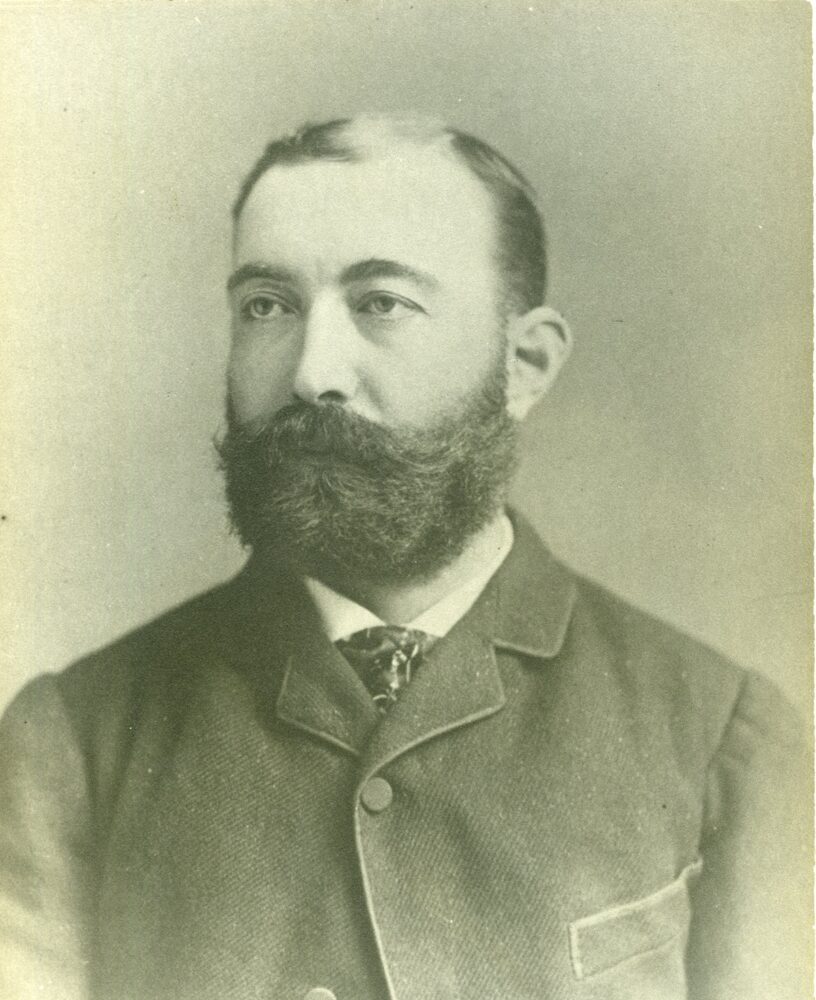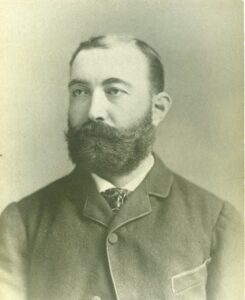Outsider in Ouachita Parish Politics
George B. Hamlet, Monroe’s first Black mayor
Published: November 30, 2023
Last Updated: February 29, 2024

National Archives and Records Administration
An 1897 portrait of Hamlet.
Hamlet later moved upriver and settled into the Tensas Parish town of Waterproof. This was a strategic move. In this area prominent Black leaders of the Republican Party reigned supreme, including Alfred Fairfax, the influential leader of the Tensas Parish Republican Party. Though nineteen-year-old Hamlet was unable to participate in politics, since he had not yet reached the age of majority (then twenty-one), he likely rubbed elbows with members of the political establishment while waiting to become eligible.
Hamlet became a registered voter in September 1872, quickly securing an appointment to the Committee on Resolutions, the body responsible for the review and preparation of resolutions, and a nomination to run for the office of Tensas Parish Recorder, the official custodian of real estate and property records. Hamlet was unsuccessful in the November 1872 race, but nevertheless he was voted in as a member of the Tensas Parish Republican Executive Committee. He shared the honor with fellow Ohioan, Ewing W. Robinson, an appointed Tensas deputy sheriff and former school board member, who is believed to have been the first Black Louisiana deputy sheriff to be murdered in the line of duty.
In February 1873, with his satchel in one hand and Republican capital in tow, Hamlet moved to Monroe. The town’s first city council had been elected in 1871 and included a majority of Black men. When Mayor J. L. Hunsicker died in office in July 1873, Governor William P. Kellogg appointed Hamlet to complete his term following his selection by the Republican Party and endorsements from Chief Justice John Theodore Ludeling, Judge Robert Ray, and State Senator O. H. Brewster. In August 1873 Duncan Hill, a Black councilman, presented the mayor’s commission to Hamlet.
Hamlet’s appointment did not come without opposition. In The Mayor and City Council of Monroe vs. Joseph Hoffman, a case that involved removal of a wooden building from a newly created “fire district,” local resident Joseph Hoffman challenged the building’s removal on the basis that Hamlet’s appointment was invalid and as such he had no authority to create the fire district. In his decision, even though Justice Robert Hardin Marr opined that citizens were cheated out of their chartered right to elect a mayor, he affirmed that Hamlet was indeed the mayor under color of title. Regardless of some residents’ skepticism of the young mayor, the council, and their governance, the administration made important changes: they divided the city into four wards to elect seven councilmen and a mayor; expanded Walnut Street; expended money to improve Desiard Street; and purchased the Silsby Rotary Steam Fire Engine, which was named “The Pride of Monroe.”
Hamlet’s term expired May 14, 1874. Soon after Governor Kellogg appointed him as the City’s Recorder of Court. The position was that of a judge tasked with conducting “legal proceedings involving city ordinances.” However, his appointment again drew protest. The Ouachita Telegraph opposed Hamlet’s appointment, claiming he was inept. He nevertheless served until 1875.In October 1874, the Republicans had met at Wisner School to nominate their ticket for the November election. Party members unexpectedly nominated Hamlet in lieu of incumbent Ouachita Parish Sheriff Dr. Bernard H. Dinkgrave. When he was elected, sureties for his public official bond, a kind of “insurance” for public officeholders, came from the Black community. Red tape delayed his installation until late January 1875. (Ten months later, he was the executioner of Alcee Harris, the first woman publicly hanged in Ouachita Parish. Harris, a Black woman, had been convicted of the murder of her husband, Henry Harris, and was executed on November 26, 1875, which garnered national news coverage.)
By 1876 Hamlet’s political standing had risen, even in the face of increasing violent opposition to Black political power. He was one of twenty-four Black delegates to attend the Republican National Convention in June 1876 in Cincinnati, Ohio. He became a candidate for the 18th Senatorial District for Ouachita and Caldwell Parishes. In the Louisiana elections of 1876, both major candidates claimed the governorship and other offices, and though Hamlet was not initially recognized as having won his seat, an investigation into electoral fraud and voter intimidation in Ouachita Parish led to his installation. In a speech to the Democrat-dominated State Senate, he proclaimed loyalty to his party, race, and district, then resigned in protest.
It is unclear if Hamlet ever returned to Ouachita Parish after his resignation, but he came, he saw, he participated, and led. He championed Black rights and rose to become a powerhouse in the Republican Party—and amassed earnings of about $20,000, over half a million of today’s dollars.
Kimareanna “Kim” Ross is a writer who lives in Monroe. She is also a visual artist and a member of the Black Creatives Circle of North Louisiana.
